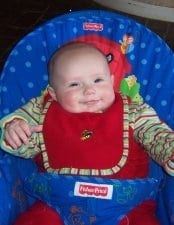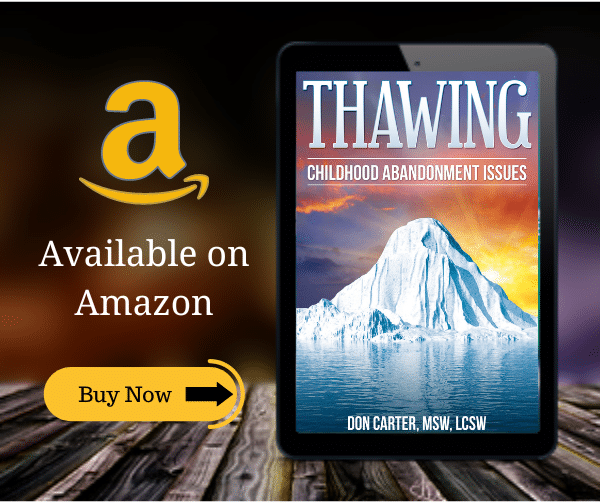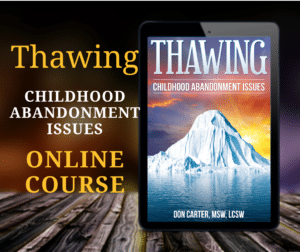
Child Development Stages
Infancy; AKA Oral Stage [0-2 years]
Basic Trust VS Mistrust

In this child development stage, the only way an infant can express a need is to cry. Initially, they have one type of cry in their repertoire but, through experience, develop different types of cries to signal different needs.
Attentive parents come to recognize these signals quickly. In this way the signals are established and reinforced; learning is already taking place! It’s in how these signals are responded to that the developmental crisis occurs. Parents who notice, evaluate, and respond to the child’s needs appropriately and consistently help the child have a positive outcome to this child development stage.
Parents who consistently don’t notice the signals, evaluate them incorrectly, or otherwise respond inappropriately, foster a negative outcome for the child. The operative word here is “consistently” — There is plenty of room for mistakes and new, inexperienced parents will make their share of them.
Key Point: Loving and parenting are NOT the same thing — parenting is a skill. For various reasons, many loving parents do not possess parenting skills adequate to meet the needs of their children… usually, because their own parents did not possess adequate parenting skills.
Wounded parents or parents who were not adequately parented themselves will consistently respond with poor parenting skills such as making the same mistakes over and over, miss or simply ignore the signals, or flat out abuse their baby by yelling, shaking, or spanking the infant.
Just as infants are not able to directly ask for what they need, in this child development stage they are not able to understand direct verbal communication from those who try to meet their needs. Most of what is communicated from parent to child come primarily through three sensory systems – sight, sound, & touch.
Touch is one of the most important sensory channels for babies. The largest sense organ in the body is the skin. Infants experience skin hunger. An incredible amount of data is shared through how the baby is held, stroked, and touched. Positive and negative outcomes for this stage hinge on the type, amount, and frequency of touch.
Of course consistently negative, rigid, infrequent, unloving, fearful, or abusive touch results in negative outcomes in the child development stage of infancy. Alternatively, loving, frequent, soft, nurturing, attentive, and affectionate touch results in positive outcomes.
The “primal gaze” is often observed between mother and infant. This is another incredibly important communication channel from parent to child. Does the gaze occur — if so, what messages are being sent to the child? Are the parent’s facial expressions loving, adoring, and protective — or do they tend to be impatient, harsh, glaring, burdened, etc?
The qualities of sound are also a major factor — soft, loving, cooing, gentle and confident tones are better for infants that sudden loud noises, yelling, screaming, and harsh tones.
All three of these sensory systems, combined with taste and smell, are active during the most intimate and important connection of all — nursing the infant. There is little controversy over the issue of bottle feeding vs. breastfeeding an infant. But this issue focuses primarily on physical nourishment which is just one type “feeding” that is required by the child.
Infants need emotional nourishment just as much as physical nutrients. The emotional nourishment comes through a combination of the above described sensory channels. Whether breast or bottle-fed, the primal gaze, cooing sounds, and gentle snuggling involved with nursing an infant are all critical to nurturing, trust, and a sense of safety.
Due to having a Parent ego state that was programmed by our parents, we tend to care for ourselves in the same way that they cared for us – i.e., our self-nurturing today is a product of the nurturing we received back then.
Erikson also identified virtues that develop according to the outcomes of each stage…for this child development stage, the virtue is Hope. With poor outcomes, it becomes more difficult to hope and frequent feelings of hopelessness occur.
Self-Assessment
Unmet needs in each child development stage can be observed in present-day symptoms. For each of the following statements assign a rank between 10 (High) and 1 (Low).
- ___ I do not feel I have a right to ask others to meet my needs
- ___ Feeling close to others frightens me
- ___ The world feels like an unsafe and fearful place
- ___ I have a strong need to be in control in order to feel safe
- ___ I don’t like being touched or touching others
- ___ I have a hard time acknowledging and responding to my own wants and needs
- ___ I have a difficult time giving attention to others
- ___ I have a strong or excessive need to be admired by others
- ___ Despite what others say, I doubt that I’m lovable
- ___ I have experienced addictions or compulsions involving the mouth (oral, ingestive objects such as drugs, alcohol, food, cigars, cigarettes, chewing tobacco, etc.)
- ___ I have difficulty trusting that others will meet my needs so I try to take care of them myself
- ___ I lack trust in myself to take care of my needs
- ___ I have a tendency to lose hope or feel hopeless about ever being happy or getting what I really want.
- ___ I have a tendency to trust too early in a relationship or friendship
- ___ I have deep fears of intimacy because it could result in abandonment
If You have significant symptoms here, You may benefit from Don’s Thawing Childhood Abandonment Issues Online Course





